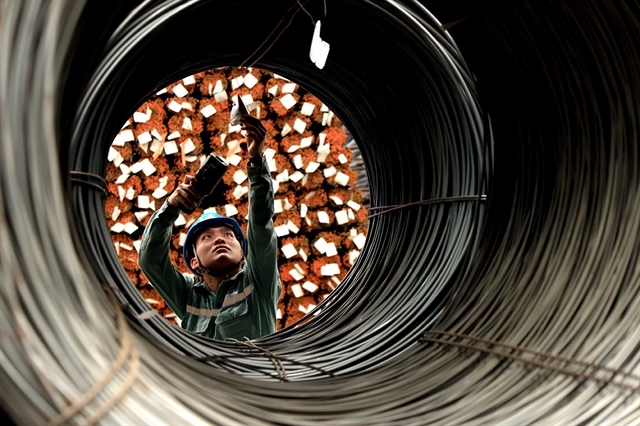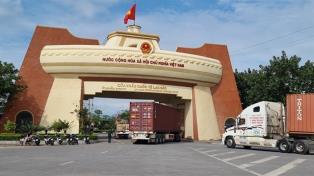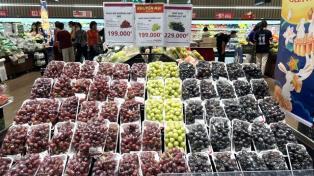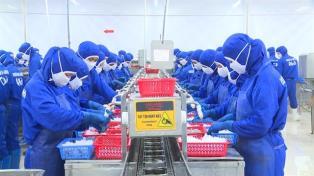Data from the Trade Remedies Authority of Vietnam, under the Ministry of Industry and Trade (MoIT) show that to date, Việt Nam has faced 293 trade defence investigations initiated by foreign partners.

HÀ NỘI — Enhancing governance capacity, ensuring supply chain transparency and complying with rules of origin are key components to allow enterprises to cope with trade defence measures from international markets.
According to the Vietnam Trade Office in India, India has so far initiated 34 trade defence cases against Vietnamese exports, including 27 anti-dumping, six countervailing and one safeguard investigation.
These figures clearly reflect India’s increasingly strict monitoring of Vietnamese exports and serve as a warning about rising trade legal risks.
Not only India, many other markets have recently strengthened their use of trade defence instruments against imports. Trade defence measures remain a major challenge for Vietnamese exporters striving to access potential markets.
Data from the Trade Remedies Authority of Vietnam, under the Ministry of Industry and Trade (MoIT) show that to date, Việt Nam has faced 293 investigations initiated by foreign partners.
The authority noted that globalisation and trade liberalisation remained inevitable global trends, reflected in the signing of numerous bilateral and multilateral free trade agreements (FTAs), which facilitate Vietnamese goods’ access to international markets.
The reduction of tariff and non-tariff barriers has helped increase competitiveness and ease market entry for Vietnamese products.
However, alongside trade liberalisation, protectionism has also become increasingly complex and unpredictable in recent years.
Not only major economies like the US and the EU, but many other WTO members are also strengthening protection through stricter technical standards and trade defence measures to safeguard domestic industries from rising import pressures.
When such defence measures are activated, some businesses attempt to 'circumvent the law' by transhipping through third countries, falsifying the origin of goods or shifting their investments.
This has prompted import authorities to tighten investigations further, increasing the risk that Vietnamese goods may be inadvertently implicated in circumvention cases.
Proactive response
A major reason Vietnamese enterprises are often passive in trade defence lawsuits is their lack of understanding of international trade law, along with poor data management and weak risk control.
Many, especially small and medium-sized enterprises, still consider being sued as something distant until reality hits and losses occur due to a lack of preparation.
Bùi Trung Thướng, commercial counsellor and head of the Vietnam Trade Office in India said that India, currently the world’s fifth-largest economy and on track to become the third, was a vast and promising market.
Trade defence was considered a normal legal tool in India to protect domestic industries, he said.
Therefore, he added, Vietnamese enterprises must view it as an inevitable part of international integration and proactively respond rather than fear it.
However, the representative also noted that India was tightening its import standards, applying numerous regulations on quality, safety, origin and the environment, all of which serve as technical trade barriers.
Businesses must enhance management capacity, invest in technology and ensure supply chain transparency, said Thướng.
These would be key for Vietnamese firms to maintain competitiveness and take the initiative in responding to tax investigations, he said.
Positive outcomes show that in many Indian cases, Vietnamese enterprises achieved favourable results with low or even zero anti-dumping duties. This proves that if businesses prepare adequate documentation and cooperate transparently with investigating authorities, maintaining market access is entirely feasible.
Amid global trade volatility, Trần Thanh Bình, a representative from the MoIT’s Agency for Foreign Trade, recommended that enterprises equip themselves with essential information to adapt and avoid trade disruptions.
Businesses should also develop long-term business plans, strengthen their competitiveness in open-market conditions, and strictly comply with rules of origin to avoid any involvement in origin fraud, she said.
In addition, businesses are advised to explore and leverage FTAs to expand export markets; invest in human resources and digital technology to sustain competitiveness; and prepare contingency plans to mitigate market risks and shocks. They must also be ready to respond to protectionist measures and trade defence lawsuits. — VNS





